
Through various callings in the church many of us get to teach children or interact with them in some way and I can't think of a better book to provide insight and wisdom to this awesome responsibility. I want to lead in with a review of Cindy's book, Powerful Tips for Powerful Teachers.
"Eloquent and thoughtful, Powerful Tips for Powerful Teachers will be as welcome as sunshine for early morning seminary teachers - and anybody else who builds and blesses the kingdom one class at a time. It is a book of vivid explanation, touching spiritual insight, and helpful practicality. I've been teaching for more than two decades, but I can't wait to start my own teacher's journal and apply the wisdom - and charity - I found in this wonderful little book! I can't think of a teacher anywhere (and aren't we all teachers?) who wouldn't benefit from these powerful tips. It was a joy and delight to read!" ~Kerry Blair, author Counting Blessings: Wit and Wisdom for Women and Of Infinite Worth: Tributes to Motherhood
Born in Colorado, C.S. grew up in the Rockie Mountains and loved the beauty and wonder of her surroundings. She began reading at the early age of four and fell in love with the printed word. in 7th grade she won her first writing contest. She graduated from BYU with a Communications degree but had an emphasis in human resource development, speech and instructional matierals (along with a heavy dose of theater).
C.S. is a remarkable woman with a remarkable talent.
Here's her delightful interview:
M.B.: When did you first know you wanted to be an author?
CINDY: I remember playing with words even as a small child. I loved how they rolled around my mouth. I also played like crazy with sentence structure and emphasis. It amazed me that pushing one word harder could change the meaning of a sentence from "I'm going to the store" to "I'm going to the store." That kind of nuance fascinated me.
Later as a new teenager, instead of exploring dangerous territories (well, maybe a dictionary is a dangerous territory?), I would sit in my room for hours and read Webster's. How could there be this many words? What did they all mean? Words like "sycee" and "lithosol" and "hermeneutical" held deep fascination. To my little mind, they held the secrets to the mysteries of life (although the character "Mathemagician" in Norton Juster's The Phantom Tolbooth would disagree ...).
M.B.: What was the pathway like for you to get your first book published?
CINDY: I remember wanting to be a writer and published author more than anything. My parents were both educators, so for me, books held the wisdom of the ages. Bookstores could get my blood pumping like nothing else. I would walk in them and feel the yearning to have something of me placed on those shelves. But my writing has taken a circuitous route. I am also a composer and am fascinated with sound and its impact. Through the years I experimented both with writing and composing. My initial efforts were aimed at stage productions. I had done much theater through the years as an actress and vocalist, so it was a natural evolution to write plays and musicals. I wanted to touch peoples' lives. I wanted to leave them different than they were when they first sat down in the theater.
This ability to move people became paramount for me as I wrote. Whether through song or through spoken word, I wanted others to know that hope is a real emotion. But as you know, hope does not glimmer its brightest shade without exposure to the darkest colors of suffering. Thus, my productions weren't necessarily upbeat, but they were important in what they wrought. I could see the joy in audience members' faces as they left.
From there, I branched out into poetry, with my poems being accepted for inclusion in different publications. After that, I began writing for both online and print media, and have hundreds of articles in print. Eventually this brought me to my book, Powerful Tips for Powerful Teachers: Helping Youth Find Their Spiritual Wings. It is a book to help adults understand teens in life-changing ways. I have several novels in the works, in addition to other non-fiction pieces nearing completion. I continue to teach creativity workshops and privately coach writers in the creativity process.
M.B.: Were you ever discouraged along the way? If so, how did you deal with it?
CINDY: I think deep emotions are an inherent part of authors, artists, composers, etc. How can you hope to sculpt something--whether on a printed page, on a stage, or even in a painting--without feeling deeply? Thus, I think any great individual who is creating will be prone to discouragement and perhaps even dark feelings of despair. I know I've had my share. What I think is important for all those who are attracted to the arts is to remember there are always opposites in life. That is the great principle of the law of opposition. So if you feel discouraged, it is important to lift your head and remember the gift of that discouragement. It means you are close to finding and receiving, opening, its opposite, which gift may differ for each person.
For me, the legacy that discouragement brings is the companionship of wisdom. With wisdom, we stand ready to create something that is everlasting ... something will lift others on the pathway through life. My purpose is to bring hope through my creative works. For hope really does exist; it just sometimes requires mucking through the mud to find it. :0)
M.B.: What is your writing schedule like?
CINDY: I'm a mother and a wife. I am active in my church. I love the privilege of having all those things in my life. But I'm also intensely creative. For me, if I can't create I can't breathe (or at least it feels that way). I notice I begin to get cranky, almost like a fish whose pores are covered and is dying. Over-scheduling my days suffocates me. When those times happen, and I can't get to writing or to the piano to compose, I then have to find solace in the smile of my child. Creating those "smile minutes"--happy moments of laughter and tickle-fights and fun with my kids--helps me stay balanced until I can get writing or composing again.
I find that I write best in the mornings. And so as long as I stick with an early morning writing schedule, I do much better at actually getting to creating and moving forward.
M.B.: Where do your ideas come from? How do you know the idea is good enough to write a book or a play about it?
CINDY: Wow, that is a great question! It comes in tiny moments for me ... the turn of a phrase I overhear in a restaurant or a picture I see in a magazine. Or a newspaper clipping of a person in an anguished situation. I also love history books and am intrigued by the overlooked UNfamous people. I get to wondering what the individual's life was (or is) like. What were their greatest sorrows? Their greatest joys? It frustrates me that I can't ask that ancient person and so my mind begins to fill in the blanks. And then I want to start writing. Or it might be a concern about something occurring in today's world. That's when my non-fiction writing kicks in.
M.B.: What words of advice do you have for other writers who desire to have their manuscripts become books in print?
CINDY: I think the most startling idea new writers eventually recognize is this: very rarely does a person go from non-writing to six-figure wealth due to writing. And the writer who does succeed in this way has worked very hard. Writing is work. It should stay fun, but it is effort.
Second, new writers would do well to learn from someone like you, Michele, with more than 20 successful books to your name. Successful writers are attracted to the learning of the craft of writing, almost as much as loving the writing itself. Successful writers study to improve and continue their writing output--all at the same time. Seeing books in print is not a hobby. It's a lifetime of joyful labor.
M.B.: What is your process of brainstorming a story? Do you just sit down and write, waiting to see what happens next? Or do you outline first?
CINDY: It depends on whether I'm working on non-fiction or fiction. I love Victoria Lynn Schmidt's approach in her Book in a Month: The Fool-Proof System for Writing a Novel in 30 Days. Using her "Ten Event" technique helps clarify the power of the story, bringing it greater depth and resonance. It also is a simple approach that actually helps writing that dreaded synopsis. :0)
M.B.: Do you ever experience a snag in a story, a form of writer's block? If so, how do you deal with it?
CINDY: For years I'd had a problem with this. Jack Heffron addresses this in his book, The Writer's Idea Workshop: How to Make Your Good Ideas Great. He encourages the writer to look deeper and to see what he or she is dealing with on a personal level that prevents completion of projects. That book is an excellent resource for individuals who get snagged by writer's block.
M.B.: Do you need absolute quiet to write? Do you listen to music when you are writing?
CINDY: Quiet isn't so much the problem for me. I can lose myself in nearly any location. What is a problem for me is the way my mind thinks. I am very good at laser beam creativity. I've always been a bit this way. But my greatest strength is my greatest weakness. I can focus to the exclusion of all else, but it takes me time to sync and sink into that creative place. Once I get there, I could write for 14 hours straight (and have). My creative juices get flowing and the work output is amazing. The flow is good. The emotional resonance and vibe from it all closely arrives at what I'm pleased with. But when there are only little snitches of time here and there, I struggle to write anything that resonates on any level. It seems to fall flat. This, more than anything for me is my greatest challenge. But it's something I'm working with, now that I'm a mom. And I wouldn't trade being a "mommy" for anything. It's worth it.
M.B.: What kinds of inspiration do you use during your story creation periods?
CINDY: I demonstrate and teach a lot of different techniques during my creativity workshops. But one that is my favorite is to research a unique word from the time period I'm writing about. I'll select a singular vocab word of that era (i.e. "coinage"--a term used in 1629) and write a scene with the goal of using that word. It gives the flavor I need and keeps the writing fun. Others teach this technique also. It has a way of opening the creative flow.
M.B.: Who has made the greatest difference for you as a writer?
CINDY: My favorite writer is Shakespeare. While in college I learned that over 600 vocabulary words in use today come from Shakespeare's own inventions. He simply made up words if none existed to express what he wanted. To me, that is the height of creativity and the power of boldness.
M.B.: Do you use a critique group during the writing process? Why or why not?
CINDY: Absolutely. It doesn't matter how many times I've looked at something, there is always something I miss. It could be a grammatical term, a punctuation point (such as accidentally typing two periods at the end of a sentence), or a complete flaw in the timeline of the story. Perhaps it was an artificial emotion. Whatever it might be, I need fresh eyes to help me morph what I'm trying to say into something that actually says what I meant.
I must say, though, critique groups are hard to get used to at first. The most important thing for new writers to remember is that if you are a member of a GOOD critique group, each member of that group will be vying for your success (and you for them). Thus, the comments expressed are there to help the writer achieve quality writing, not to hurt feelings. It is important for the new writer not to personalize critiques meant to help the story. Really, if what you've written is not yet "there", embrace all feedback. Analyze it. Use what works for you. Listen to what has been said with an open mind. Then do what you choose, but remember: it exists to help make your writing better.
M.B.: Any final words you would like to share?
CINDY: I earnestly believe that talents are given to bless the lives of others. We feel joy when we've found those unique purposes and gifts. Those talents renew us as we work within them. For some, those gifts might be found in gardening. The sun on your back, feeling the fresh dirt, smelling the herbs, it all brings joy. Joy is a pretty big indicator of having found your gift, your purpose. On the other hand, if smelling the interior of books, writing in long hand, editing words ... if these are the things that bring joy and satisfaction, these then are a strong indicator of your place in this world. The more you uncover what makes you unique and worthwhile, the more joy you'll find developing those gifts and bettering the world we live in. But I still feel family trumps it all! :0)
M.B.: Where can our readers go to find your works and order them?
CINDY: Thank you, Michele. My website http://csbezas.com/ will include that information. My current book Powerful Tips for Powerful Teachers is available at DeseretBook.com at http://deseretbook.com/store/product/4977585. But make sure to bookmark my blog http://csbezas.wordpress.com/ for inspiration on the creativity process and for news about future creativity workshops!
CINDY: I remember playing with words even as a small child. I loved how they rolled around my mouth. I also played like crazy with sentence structure and emphasis. It amazed me that pushing one word harder could change the meaning of a sentence from "I'm going to the store" to "I'm going to the store." That kind of nuance fascinated me.
Later as a new teenager, instead of exploring dangerous territories (well, maybe a dictionary is a dangerous territory?), I would sit in my room for hours and read Webster's. How could there be this many words? What did they all mean? Words like "sycee" and "lithosol" and "hermeneutical" held deep fascination. To my little mind, they held the secrets to the mysteries of life (although the character "Mathemagician" in Norton Juster's The Phantom Tolbooth would disagree ...
M.B.: What was the pathway like for you to get your first book published?
CINDY: I remember wanting to be a writer and published author more than anything. My parents were both educators, so for me, books held the wisdom of the ages. Bookstores could get my blood pumping like nothing else. I would walk in them and feel the yearning to have something of me placed on those shelves. But my writing has taken a circuitous route. I am also a composer and am fascinated with sound and its impact. Through the years I experimented both with writing and composing. My initial efforts were aimed at stage productions. I had done much theater through the years as an actress and vocalist, so it was a natural evolution to write plays and musicals. I wanted to touch peoples' lives. I wanted to leave them different than they were when they first sat down in the theater.
This ability to move people became paramount for me as I wrote. Whether through song or through spoken word, I wanted others to know that hope is a real emotion. But as you know, hope does not glimmer its brightest shade without exposure to the darkest colors of suffering. Thus, my productions weren't necessarily upbeat, but they were important in what they wrought. I could see the joy in audience members' faces as they left.
From there, I branched out into poetry, with my poems being accepted for inclusion in different publications. After that, I began writing for both online and print media, and have hundreds of articles in print. Eventually this brought me to my book, Powerful Tips for Powerful Teachers: Helping Youth Find Their Spiritual Wings. It is a book to help adults understand teens in life-changing ways. I have several novels in the works, in addition to other non-fiction pieces nearing completion. I continue to teach creativity workshops and privately coach writers in the creativity process.
M.B.: Were you ever discouraged along the way? If so, how did you deal with it?
CINDY: I think deep emotions are an inherent part of authors, artists, composers, etc. How can you hope to sculpt something--whether on a printed page, on a stage, or even in a painting--without feeling deeply? Thus, I think any great individual who is creating will be prone to discouragement and perhaps even dark feelings of despair. I know I've had my share. What I think is important for all those who are attracted to the arts is to remember there are always opposites in life. That is the great principle of the law of opposition. So if you feel discouraged, it is important to lift your head and remember the gift of that discouragement. It means you are close to finding and receiving, opening, its opposite, which gift may differ for each person.
For me, the legacy that discouragement brings is the companionship of wisdom. With wisdom, we stand ready to create something that is everlasting ... something will lift others on the pathway through life. My purpose is to bring hope through my creative works. For hope really does exist; it just sometimes requires mucking through the mud to find it. :0)
M.B.: What is your writing schedule like?
CINDY: I'm a mother and a wife. I am active in my church. I love the privilege of having all those things in my life. But I'm also intensely creative. For me, if I can't create I can't breathe (or at least it feels that way). I notice I begin to get cranky, almost like a fish whose pores are covered and is dying. Over-scheduling my days suffocates me. When those times happen, and I can't get to writing or to the piano to compose, I then have to find solace in the smile of my child. Creating those "smile minutes"--happy moments of laughter and tickle-fights and fun with my kids--helps me stay balanced until I can get writing or composing again.
I find that I write best in the mornings. And so as long as I stick with an early morning writing schedule, I do much better at actually getting to creating and moving forward.
M.B.: Where do your ideas come from? How do you know the idea is good enough to write a book or a play about it?
CINDY: Wow, that is a great question! It comes in tiny moments for me ... the turn of a phrase I overhear in a restaurant or a picture I see in a magazine. Or a newspaper clipping of a person in an anguished situation. I also love history books and am intrigued by the overlooked UNfamous people. I get to wondering what the individual's life was (or is) like. What were their greatest sorrows? Their greatest joys? It frustrates me that I can't ask that ancient person and so my mind begins to fill in the blanks. And then I want to start writing. Or it might be a concern about something occurring in today's world. That's when my non-fiction writing kicks in.
M.B.: What words of advice do you have for other writers who desire to have their manuscripts become books in print?
CINDY: I think the most startling idea new writers eventually recognize is this: very rarely does a person go from non-writing to six-figure wealth due to writing. And the writer who does succeed in this way has worked very hard. Writing is work. It should stay fun, but it is effort.
Second, new writers would do well to learn from someone like you, Michele, with more than 20 successful books to your name. Successful writers are attracted to the learning of the craft of writing, almost as much as loving the writing itself. Successful writers study to improve and continue their writing output--all at the same time. Seeing books in print is not a hobby. It's a lifetime of joyful labor.
M.B.: What is your process of brainstorming a story? Do you just sit down and write, waiting to see what happens next? Or do you outline first?
CINDY: It depends on whether I'm working on non-fiction or fiction. I love Victoria Lynn Schmidt's approach in her Book in a Month: The Fool-Proof System for Writing a Novel in 30 Days. Using her "Ten Event" technique helps clarify the power of the story, bringing it greater depth and resonance. It also is a simple approach that actually helps writing that dreaded synopsis. :0)
M.B.: Do you ever experience a snag in a story, a form of writer's block? If so, how do you deal with it?
CINDY: For years I'd had a problem with this. Jack Heffron addresses this in his book, The Writer's Idea Workshop: How to Make Your Good Ideas Great. He encourages the writer to look deeper and to see what he or she is dealing with on a personal level that prevents completion of projects. That book is an excellent resource for individuals who get snagged by writer's block.
M.B.: Do you need absolute quiet to write? Do you listen to music when you are writing?
CINDY: Quiet isn't so much the problem for me. I can lose myself in nearly any location. What is a problem for me is the way my mind thinks. I am very good at laser beam creativity. I've always been a bit this way. But my greatest strength is my greatest weakness. I can focus to the exclusion of all else, but it takes me time to sync and sink into that creative place. Once I get there, I could write for 14 hours straight (and have). My creative juices get flowing and the work output is amazing. The flow is good. The emotional resonance and vibe from it all closely arrives at what I'm pleased with. But when there are only little snitches of time here and there, I struggle to write anything that resonates on any level. It seems to fall flat. This, more than anything for me is my greatest challenge. But it's something I'm working with, now that I'm a mom. And I wouldn't trade being a "mommy" for anything. It's worth it.
M.B.: What kinds of inspiration do you use during your story creation periods?
CINDY: I demonstrate and teach a lot of different techniques during my creativity workshops. But one that is my favorite is to research a unique word from the time period I'm writing about. I'll select a singular vocab word of that era (i.e. "coinage"--a term used in 1629) and write a scene with the goal of using that word. It gives the flavor I need and keeps the writing fun. Others teach this technique also. It has a way of opening the creative flow.
M.B.: Who has made the greatest difference for you as a writer?
CINDY: My favorite writer is Shakespeare. While in college I learned that over 600 vocabulary words in use today come from Shakespeare's own inventions. He simply made up words if none existed to express what he wanted. To me, that is the height of creativity and the power of boldness.
M.B.: Do you use a critique group during the writing process? Why or why not?
CINDY: Absolutely. It doesn't matter how many times I've looked at something, there is always something I miss. It could be a grammatical term, a punctuation point (such as accidentally typing two periods at the end of a sentence), or a complete flaw in the timeline of the story. Perhaps it was an artificial emotion. Whatever it might be, I need fresh eyes to help me morph what I'm trying to say into something that actually says what I meant.
I must say, though, critique groups are hard to get used to at first. The most important thing for new writers to remember is that if you are a member of a GOOD critique group, each member of that group will be vying for your success (and you for them). Thus, the comments expressed are there to help the writer achieve quality writing, not to hurt feelings. It is important for the new writer not to personalize critiques meant to help the story. Really, if what you've written is not yet "there", embrace all feedback. Analyze it. Use what works for you. Listen to what has been said with an open mind. Then do what you choose, but remember: it exists to help make your writing better.
M.B.: Any final words you would like to share?
CINDY: I earnestly believe that talents are given to bless the lives of others. We feel joy when we've found those unique purposes and gifts. Those talents renew us as we work within them. For some, those gifts might be found in gardening. The sun on your back, feeling the fresh dirt, smelling the herbs, it all brings joy. Joy is a pretty big indicator of having found your gift, your purpose. On the other hand, if smelling the interior of books, writing in long hand, editing words ... if these are the things that bring joy and satisfaction, these then are a strong indicator of your place in this world. The more you uncover what makes you unique and worthwhile, the more joy you'll find developing those gifts and bettering the world we live in. But I still feel family trumps it all! :0)
M.B.: Where can our readers go to find your works and order them?
CINDY: Thank you, Michele. My website http://csbezas.com/ will include that information. My current book Powerful Tips for Powerful Teachers is available at DeseretBook.com at http://deseretbook.com/store/product/4977585. But make sure to bookmark my blog http://csbezas.wordpress.com/ for inspiration on the creativity process and for news about future creativity workshops!




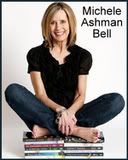
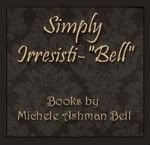





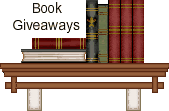


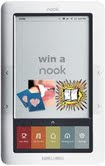













































-page-001.jpg)












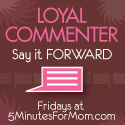
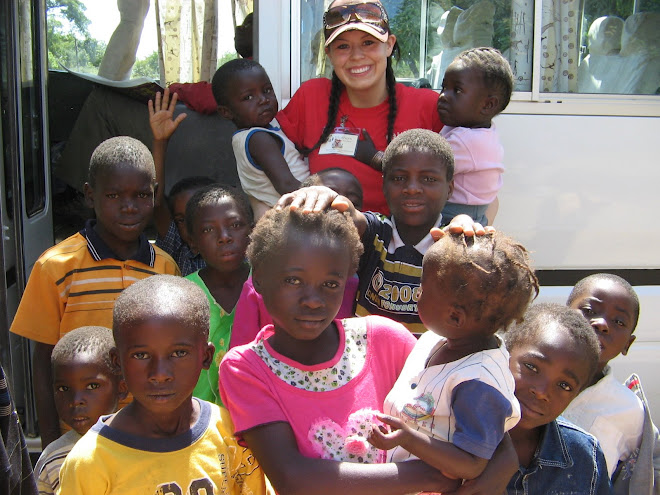
5 comments:
Wonderful interview. I love Cindy--she's so spiritual and has such a kind heart. She's an amazing woman. I love, love, love her music--very touching.
Thanks, Michele.
I went to HS with Cindy and it is so cool to see what she has done with the talents she has been given. Love the interview Michele! Great job! Thanks!
I loved this! Thanks Cindy for being so inspiring! I also love your new picture on top Michele!
I'm coming over from Mormon Mommy Blogs, asking for your help. I am in the running for a round trip airfare paid ticket to Connecticut, to meet a friend I became acquainted with through blogging. She is a super fun person and is holding this contest. I entered a funny story titled "Grapejuice Floaties, Now Marry Me." The person whose story receives the most votes will win a trip to meet this generous lady, whom I'm hoping to meet. The voting ends tonight-midnight. I used to be ahead but there is a story coming up from behind out of nowhere, and it's a tight race now. I would so much appreciate your help. Her blog is www.becausemomsaidso.blogspot.com and the voting is on the sidebar on the right. "Grapejuice, Floaties" Just go there and cast a vote for me, please. Thanks so much-you're awesome! ♥♥
YOUR VOTE REALLY WILL MAKE A DIFFERENCE!
Post a Comment